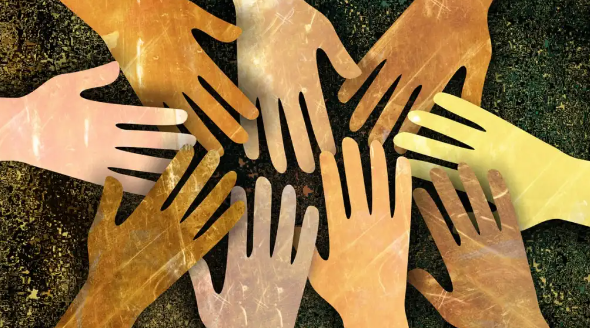How can we heal after the referendum?
The 2023 Referendum – The Voice was a crucial referendum held on the 14th of October to address the historic underrepresentation and deprivation of our Indigenous people. The outcome of this referendum was not what many had expected and certainly not what many, including I, had hoped for. The result of the referendum had devastating consequences for Indigenous communities and the nation as a whole.
It is said that this referendum brought a tsunami of racism with the level of misinformation surrounding the campaign and the lead-up to the vote. On Saturday, three Northern Territory land councils said the referendum result could not be separated from a "deep-seated racism" and "It is fair to say that not everyone who voted No is racist but also fair to say that all racists voted No". (https://www.sbs.com.au/news/article/indigenous-yes-leaders-break-silence-over-referendum/inldxkxgb)
Rather than the reassuring, inclusive and positive outcome our First Nations’ people deserve, our Nation has left them facing additional acts of racism and feelings of loneliness, abandonment and forgotten.
Following this result, Australia has entered a week of mourning to reflect on the tragic outcome of a no result. Indigenous leaders and persons have declared this week of silence as a time to mourn and deeply consider the consequences of this outcome. Activists, Indigenous leaders, and everyday Australians have vowed to fly their Aboriginal and Torres Strait Islander flags at half-mast and to respect a total media blackout.
That week has now ended, and we must consider how we can enable First Nations’ healing. How can we switch our focus to a fair, inclusive Australia? How can we ensure that our Aboriginal Elders and Indigenous Leaders are being HEARD – and not ignored, again?
So, how can we recoup and recover from the 2023 Referendum?
Australia’s history is just that. There is no changing our history, but we must acknowledge it. There is a clear need to address Australia’s history openly and honestly by ensuring that Australians recognise, understand, and accept the wrongs of the past and the impact of these wrongs on the First Peoples. You wouldn’t expect a member of your family to heal by ignoring their trauma, and, understandably, you would feel disheartened or forgotten if they tried to do this to you, so why do we think it is okay to treat our First Peoples and their families this way?
Telling the truth and accepting our history not only brings to light colonial conflict and dispossession it also acknowledges the strength and resilience of our Aboriginal and Torres Strait Islander peoples and cultures.
Our nation must have the courage to own the truth, to heal the wounds of its past so that we can move on together at peace with ourselves.
- The Australian Declaration Towards Reconciliation
Following the outcome, Australian States are now moving forward with their truth and treaty recognition. Whilst progress towards reconciliation for Australia will always be a good outcome, I can’t help but wonder if the states acting independently on this matter will cause more harm than good in terms of inclusion and moving forward as a nation. Rather than finding our own solutions and steps forward, don’t we want to make these steps together as a nation?
The National Indigenous Australians Agency has said in its corporate plan that implementing the Uluru Statement from the Heart will be a key priority over the next four years. However, implementing this may look different to what could have been expected initially. Whilst the referendum is still very recent, it is yet to be announced what these next steps will involve. Still, I encourage each of you to do your research, stay updated with news following the Referendum, and become an active ally for what you are passionate about.
Remember that healing takes time, and the level of comfort and support needed may vary from person to person. Remember to be kind, patient and understanding to others as we navigate the next step towards a fair and equal Australia.

